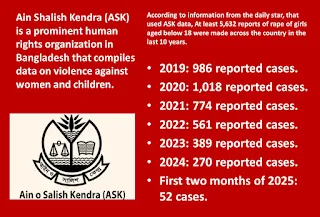It has been proposed by the Federation of Bangladesh Chambers of Commerce & Industries that the income tax exemption limit in Bangladesh be elevated to Tk 450,000 for general taxpayers, and to Tk 500,000 for female and senior citizen taxpayers, with the intended objective of mitigating the amplified financial pressures stemming from the prevailing inflation rates and the inexorably increasing cost of living. This proposition is predicated on the understanding that the existing tax thresholds may no longer adequately reflect the economic realities faced by a substantial portion of the populace, particularly in light of recent inflationary trends that have significantly eroded disposable incomes.
While the aforementioned proposal addresses these exigencies, the potential macroeconomic repercussions, most notably their impact on Bangladesh's decelerating Gross Domestic Product growth and the elevated rate of inflation (surpassing 9%), warrant thorough analysis. It is posited that the erosion of purchasing power, particularly among households with low incomes, is being exacerbated by inflation, thereby compelling families to curtail their expenditures, which places a substantial strain upon their financial resources. The persistent rise in the general price level of goods and services not only diminishes the real value of wages and savings, but also engenders a climate of economic uncertainty, potentially dampening consumer confidence and investment. This inflationary pressure may further impede economic growth by discouraging long-term financial planning and diverting resources from productive investments to the procurement of essential commodities at inflated prices.
A more
elevated tax-free threshold is likely to precipitate a reduction in
governmental revenue, potentially impacting the funding of indispensable public
services and developmental initiatives. Governmental revenue, which is largely
derived from taxation, constitutes a critical source of funding for a wide
array of public services, including education, healthcare, infrastructure
development, and social welfare programs. A decrease in revenue could, therefore,
necessitate a reassessment of budgetary priorities, potentially leading to
either a curtailment of public services or the exploration of alternative
revenue streams. The latter may involve the imposition of new taxes or the
augmentation of existing ones, which could, in turn, exert additional pressure
on taxpayers and the broader economy.
The
National Board of Revenue, therefore, is confronted with the complex task of
evaluating the FBCCI's proposal within the parameters of Bangladesh's extant
economic realities. It is deemed necessary that adjustments to the tax-free
limit be implemented in conjunction with the adoption of strategies aimed at
broadening the tax base, enhancing the efficacy of tax administration, and
ensuring fiscal sustainability, so as to effectively support both the economic
well-being of individuals and the nation's long-term developmental objectives.
Such strategies might encompass measures to formalize the informal sector,
reduce tax evasion, and modernize tax collection mechanisms. The balancing of
these multifaceted considerations will be pivotal in formulating a fiscal
policy that fosters inclusive economic growth, alleviates poverty, and promotes
sustainable development.





